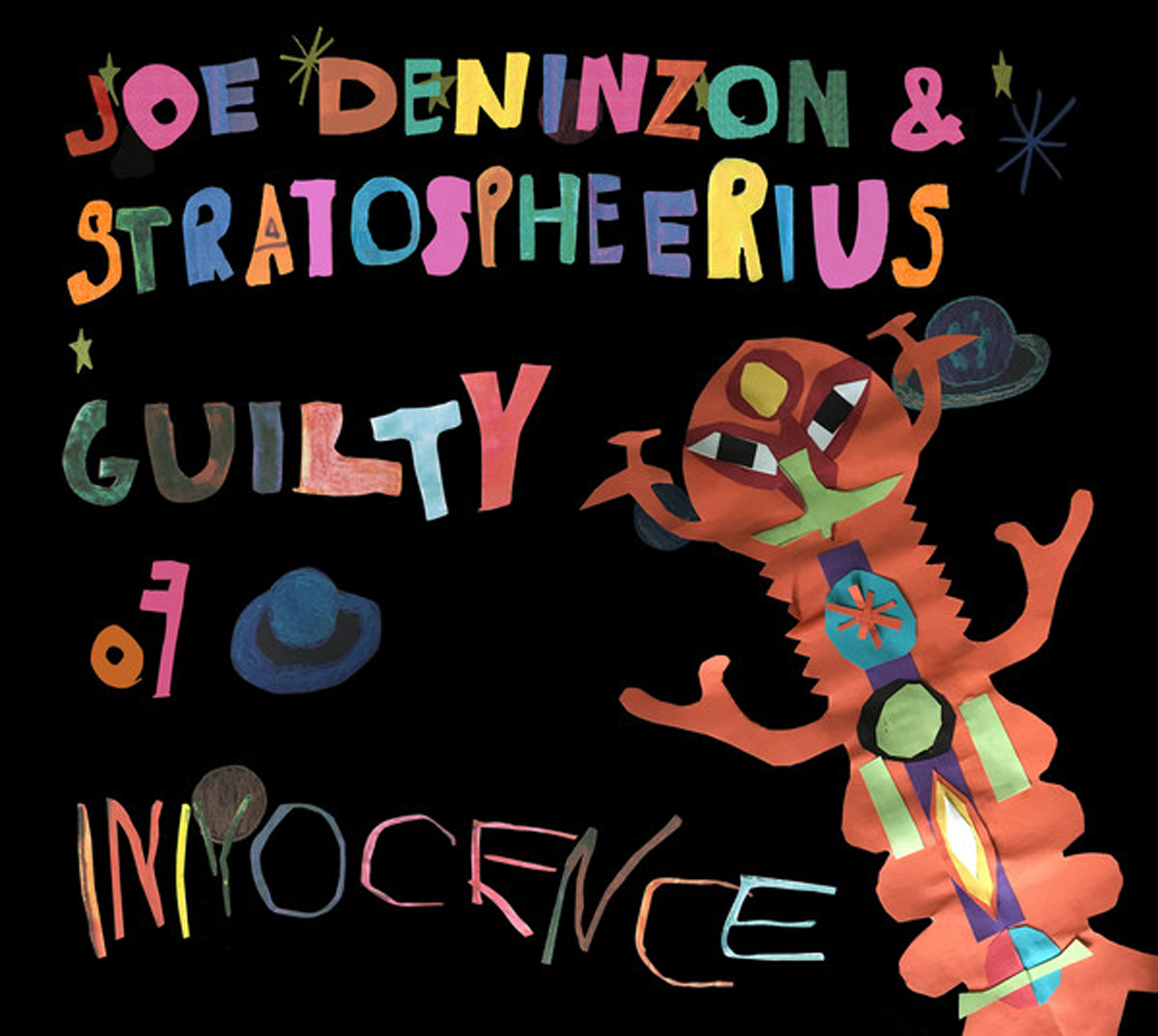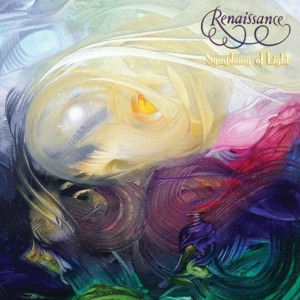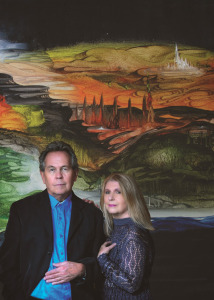(MELODIC REVOLUTION RECORDS; 2017)
The music of Stratospheerius is a frenzied, brilliant amalgam of the Blues, Progressive Rock, Funk, improvisational Jazz, Classical and orchestral music, along with just about any other genre or sub-genre you can come up with. I’m not sure, but… there may also be a bit of the kitchen sink in there somewhere. Led by virtuoso violinist Joe Deninzon, a man sometimes referred to as “the Jimi Hendrix of the electric violin,” the quartet comes closest in spirit – if not in actual sonic delivery – to the early music (through, say, 1976’s ZOOT ALLURES) of Frank Zappa and his various groups. The resultant sound is a chaotic rush of genuine (and genius) eclecticism. There is certainly more than a little of something for everyone on the band’s fifth release, GUILTY OF INNOCENCE.

The record kicks off with “Behind the Curtain.” With lyrics like “Welcome to the circus/It’s your biggest nightmare/Wear the scarlet letter/Scrutinized forever” and “Put your mask on/And tuck your shirt in/Pay no attention to the man behind the curtain,” the song acts as a sort of catch-all warning against the behind-the-scenes machinations that fuel the music industry or intolerance or political correctness or… You get the point. With a heavy, pound-yer-face-in riff-a-rama approach, bassist Jamie Bishop and drummer Lucianna Padmore lay down an exceptionally tight groove allowing Deninzon and guitarist Aurelien Budynek to go crazy with wicked dueling solos. As an opening salvo or as a stand alone piece of music, this one is a near-perfect shot across the bow of accepted norms. “Take Your Medicine” is a nasty little piece of work about “glass houses” and “casting the first stone.” It’s a bass heavy blast of funkiness with Joe’s violin filling in nicely for a full horn section. Guitar, violin and vocals add a rather hard rock urgency to the proceedings, with another dose of wild soloing, a feature that lends a certain Zappa-esque quality to this record. According to Mister Deninzon, the title track (“Guilty of Innocence,” for those with a short memory span) was “inspired by my 2012 stint in jury duty and deals with crime and punishment. I was presiding on a rape trial and the guy who I thought was guilty got off practically scot-free.” Padmore and Bishop lay down a modest Ska-influenced groove, while spastic violin leads and muscular metal riffs drive the tune. The violins and bass take on an almost operatic quality during the break and, just because I enjoy mentioning musical touch-points to give the reader a better idea of what to expect, the song’s chorus has a very Who-like feel, melodically speaking. Piling on to that musical heritage, let me say that if you’re a fan of Bela Fleck and the Flecktones or the previously mentioned Frank Zappa, you’re gonna love this one. “Face” is a sombre little ditty, sort of a slow burn piece with scathing lyrics about people (lovers, partners, friends, perfect strangers) who are more than willing to openly attack you just for the pure enjoyment: “These scars ain’t healing/It’s too late to make amends/I dodge the bullet/Your tongue flies across the room/Build up the callous/’Til I grow numb to the doom and gloom.” A very Hendrix-ian solo by Deninzon adds a certain psychedelic (or maybe it’s “psychotic”) mania to the number. The introduction to the frantic retelling of the Muse hit “Hysteria” features glass-shattering soprano Melanie Mitrano before a warbling high-register vocal from Joe takes over; the latter fits the surrounding chaos of the tune perfectly. There’s a certain “Flight of the Bumble Bee” quality to the always on-point violin work, highlighted by a massive solo, all backed impeccably by the metal leanings of Stratospheerius.
“Affluenza” is another funky number with “ripped from the headlines” lyrics about people who believe themselves superior to “the little people” and, therefore, above the law because of that superior wealth and high standards of living. The song has a kind of Living Colour rock vibe happening, with lyrical barbs aplenty over sharp jabs of guitar and violin. Guest performer Rave Tesar adds an oddly appealing set of synthesizer “bloops,” giving the whole thing a cool late ‘70s funk sound. A hard(ish) rocking, progressive sort of pop-metal thing with Queen-like aspirations, “Parallel Reality” is choke full of breathy vocals, an absolutely killer rhythm (and a melody line to match) and, of course, the usual high-minded violin/guitar interplay that makes this band and this album essential listening. “Game of Chicken” starts out sounding like it coulda been an OVER-NITE SENSATION outtake, but then turns into sort of a Kansas prog-pop kinda thing. The playing and soloing remain top-notch and raise the piece out of what could have been a severe abyss of doldrums. The wholly (holy?) improvisational “Dream Diary Cadenza” is a muscular, solo violin freakout rife with flashes of Hendrixisms, Van Halenisms, Beckisms, Zappaisms and any other guitar genius ism that you could ever bring to mind. A brilliant workout from a master technician of his chosen craft. “Soul Food” is a nearly thirteen minute extravaganza with a veritable orchestra of guest artists: Melanie Mitrano, Rave Tesar, guitarists Alex Skolnick (!) and Randy McStine, violinist Eddie Venegas, violist (?) Earl Maneein and cellists Patrice Jackson and Leo Grinhaus. The piece is epic in every musical sense of the word and is, truly, a fitting end to a superb album. You owe it to yourself to obtain GUILTY OF INNOCENCE; you can do so by visiting CD Baby, Amazon or any of the other “usual places” and, naturally, at the group’s Bandcamp page.




